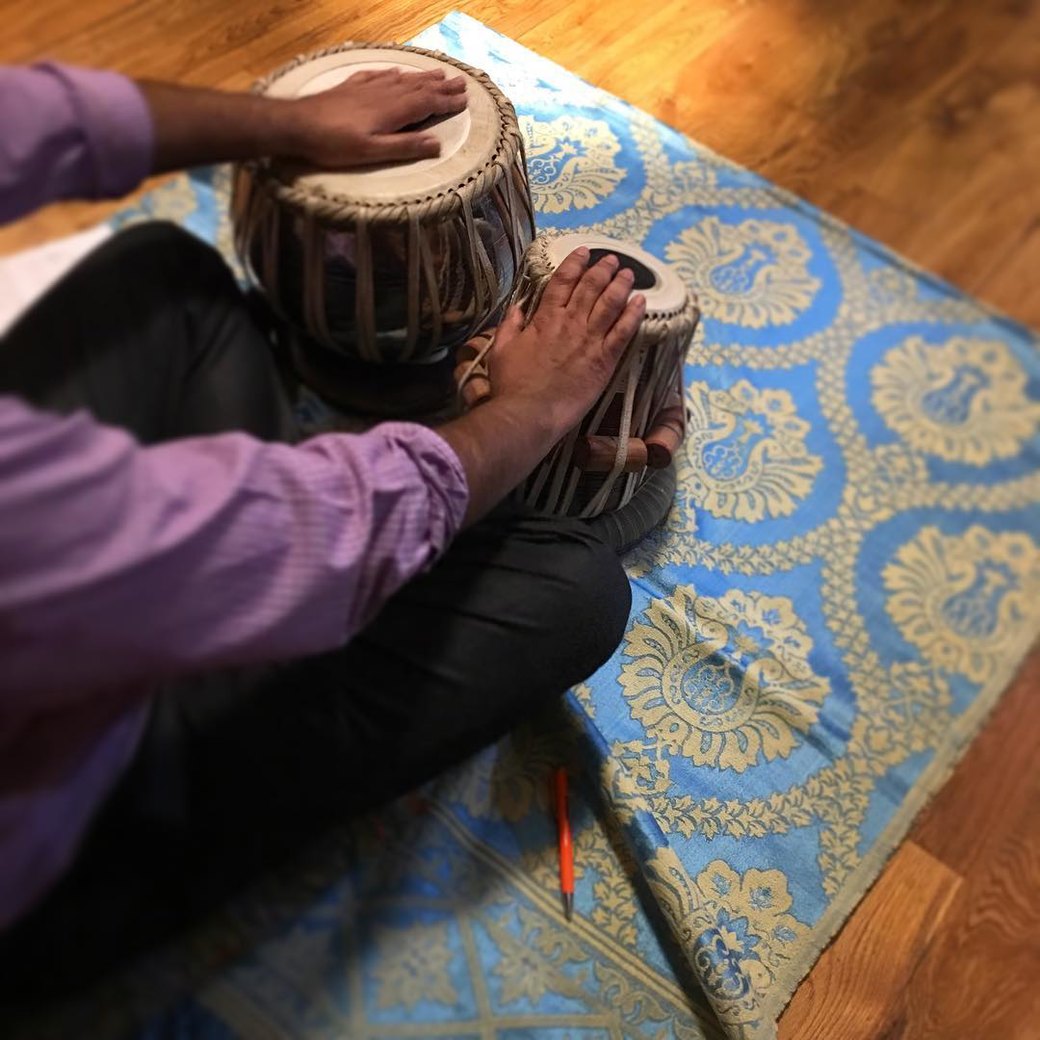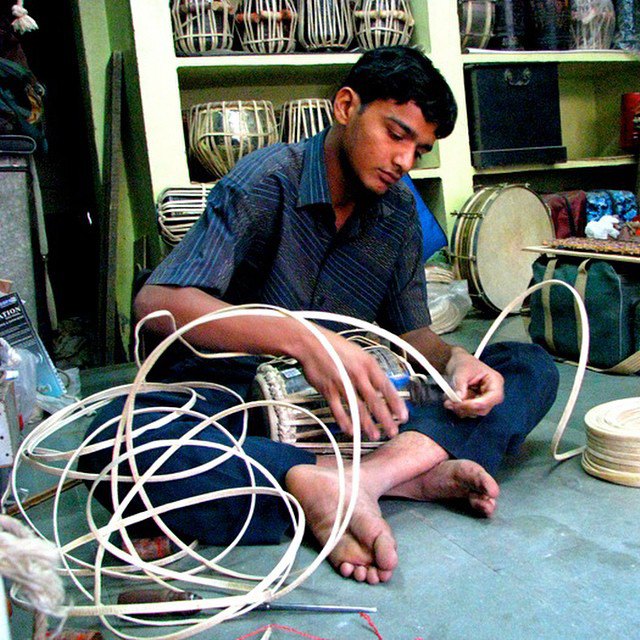
Upon returning from Spain, where she learned to dance the flamenco, Susan John had a hunger for rhythm. This time, however, it was her fingertips aching for a beat.
On a recent Sunday afternoon, John ventured to Bushwick from her home in Crown Heights for a workshop on how to play the tabla, a pair of barrel-shaped drums traditional to North Indian music.
Leaving the scarf wrapped around her neck, she sat cross-legged on a purple mat and methodically tapped along with Siddhartha Mehta as he played the bols, or notes.
Mehta, 36, runs the Art of Tabla out of a cozy music studio at 101 Wyckoff Ave. The eclectic space full of instruments and art also functions as his apartment — only after asking did I realize that he was teaching the group from under his lofted bed.

Mehta sat on a red, high-top chair before the class of three (he caps it there to give individualized attention), with his tabla on a stand next to a microphone. After chatting with the group as if he’s known them for years, it seemed like a good time to start.
The workshop doesn’t have a lot of structure: Mehta, relaxed and affable in a gray T-shirt, light blue pants and sock-covered feet, leads a jam session, and somehow in the middle, you find the rhythm you’ve been playing becomes muscle memory. Everyone that day was relatively new. It was John’s third class, and one man hadn’t played since childhood, so Mehta started with the basics.

Tabla refers to both small drums, which rested on pillows in front of each person. Mehta gestured to the dominant, higher-pitched dayan (“right”), and the bayan (“left”). He starts slow, showing the na stroke on the dayan, then the ghe strike on the bayan. Your fingers, he said, spreading them around the black syahi (“tuning paste”), are like the planetary system.
“Na, ghe, ga. Dha,” he chanted aloud for everyone to follow. His right hand seemed to detach from his body, his fingers quickly tap, tap, tapping the dayan.
“It takes time and practice to learn the technique,” he assures the group. “There’s a sensitivity to it.”
Mehta learned to play the tabla as a kid in New Jersey. It started with his father, who wanted him to get involved with music, but soon he continued learning with gurus. It’s traditional, and can be classical, but he likes to add his own modern flair with new beats and settings.
“It’s about passing it down, but let’s take it to another level,” he said. “Add something new.”
Sometimes he’ll close his eyes and chant, moving faster and faster to his own beat as the group’s rhythmic patterns fill the background in harmony. As they continue, the bols become more clear, where you can hear the vibrations coming together to make a beautiful sound.
Mehta makes all the tabla. The tops are made of goatskin and the middle is metal, with wood blocks between the shell and the straps. He also makes khartal, one of the oldest Indian percussion instruments. He touts them for their portability; made up of two slabs of wood, they fit your pocket. He rapidly clacked them together with one hand. “People kept wanting them, so I kept selling mine,” he said.

He bought a machine to cut the wood — he pointed out the Bolivian rose wood and leopardwood — and embellish them with symbols and designs, later to sell them when he plays gigs. It’s become one the main things, he said.
By “things” Mehta means a job, but also his interests — he can’t be boxed in. He teaches the tabla workshop as well as private lessons; you can find him on Airbnb Experiences. Some of his customers, like John, have Indian roots, but the majority come from all over the world.

He plays shows, but not only on the tabla: there’s a lofted drum kit on the opposite wall and guitars around the room. In his studio he records music and podcasts for himself and whoever needs equipment. He has an album coming out.
For him, the music isn’t really a business. At least it doesn’t feel that way to him. “It’s about learning something traditional and cultural and building community,” he said.
“I like providing this art and help people with their creativity,” he said. “Get them to think outside the box.”
Amongst other things, he makes wax charms for aromatherapy. Plus, he also made a satirical photobook called Flakebook, a parody on large brands and their hidden meaning, and every year he publishes an updated version of a never-ending collage. Full-time, he works in IT.
“I’m never bored,” he added, laughing. “And I always look forward to Sundays.”
All photos courtesy of Art of Tabla.




